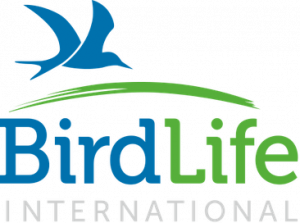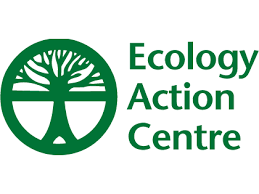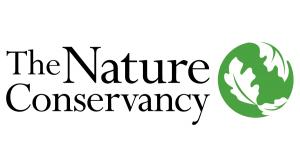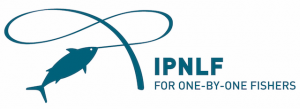June 14th 2022
Halifax, London, Washington DC, Zurich
WWF, The Pew Charitable Trusts, BirdLife Marine Programme The Nature Conservancy, Ecology Action Centre, Earthworm Foundation, IPNLF and Sharkproject are raising concerns about significant weaknesses in the proposed revisions to the Fisheries Standard of the Marine Stewardship Council (MSC) certification program.
The current MSC Fisheries Standard Review began in 2018 and is now in its final stages. The proposed revisions to the standard, against which fisheries are assessed in order to gain certification and earn the ability for their products to carry the MSC ecolabel, were released in February for public consultation and now await final input from the MSC’s expert advisory committee and board approval.
The NGO group is concerned that if the MSC board signs off on the proposed new standard at its Board meeting next week as currently drafted, it would tarnish the MSC’s reputation by failing to deliver on its stated promise to only certify sustainable seafood.
The groups released the following statements:
 Gilly Llewellyn, WWF, said: “We welcome some aspects of the MSC’s proposed new standard, such as the long overdue recognition that fisheries harassing or chasing marine mammals should absolutely not be certified as ‘sustainable’. However, overall the MSC has missed the mark with this new standard and failed to grasp the opportunity to drive real progress toward ocean conservation.”
Gilly Llewellyn, WWF, said: “We welcome some aspects of the MSC’s proposed new standard, such as the long overdue recognition that fisheries harassing or chasing marine mammals should absolutely not be certified as ‘sustainable’. However, overall the MSC has missed the mark with this new standard and failed to grasp the opportunity to drive real progress toward ocean conservation.”
 Oli Yates, BirdLife International Marine Programme, said: “The hooks, lines and nets of fishing gear are the greatest marine threat to seabirds, killing hundreds of thousands every year. Considering the impacts on marine mammals, sharks and rays, the toll rises to millions of individuals killed annually. MSC’s Standard Review is a golden opportunity to better drive implementation of solutions to limit this impact, but we are concerned that loopholes remain in the final proposals.”
Oli Yates, BirdLife International Marine Programme, said: “The hooks, lines and nets of fishing gear are the greatest marine threat to seabirds, killing hundreds of thousands every year. Considering the impacts on marine mammals, sharks and rays, the toll rises to millions of individuals killed annually. MSC’s Standard Review is a golden opportunity to better drive implementation of solutions to limit this impact, but we are concerned that loopholes remain in the final proposals.”
 Jamie Gibbon, The Pew Charitable Trusts said: “Science-based harvest strategies and harvest control rules are fundamental components in guaranteeing sustainable fisheries for the long term. While the proposed changes strengthen the harvest strategies requirements in some places, they would also double the allowed timelines for their implementation, demonstrating a continued unwillingness by the MSC to hold certified fisheries to reasonable timelines when pursuing harvest strategies.”
Jamie Gibbon, The Pew Charitable Trusts said: “Science-based harvest strategies and harvest control rules are fundamental components in guaranteeing sustainable fisheries for the long term. While the proposed changes strengthen the harvest strategies requirements in some places, they would also double the allowed timelines for their implementation, demonstrating a continued unwillingness by the MSC to hold certified fisheries to reasonable timelines when pursuing harvest strategies.”
 Shannon Arnold, Ecology Action Center, said: “Confidence in any standard requires that its claims are backed up by independently verified data. In February, we welcomed signals from the MSC indicating that it was moving toward requiring minimum monitoring thresholds in order for fisheries to be certified. It is a deeply worrying sign that these requirements now seem to have been discarded and that stakeholders have not had the chance to give input on these changes.”
Shannon Arnold, Ecology Action Center, said: “Confidence in any standard requires that its claims are backed up by independently verified data. In February, we welcomed signals from the MSC indicating that it was moving toward requiring minimum monitoring thresholds in order for fisheries to be certified. It is a deeply worrying sign that these requirements now seem to have been discarded and that stakeholders have not had the chance to give input on these changes.”
 Iris Ziegler, Sharkproject International, said: “We need all hands on deck to stop a vast wave of sharks and rays from going extinct on our watch and the MSC needs to start leading the charge toward global best practice. ‘Zero tolerance’ for shark finning requires a watertight standard and quantitative evidence for compliance. There is too much at stake to continue trusting that fisheries will comply voluntarily.”
Iris Ziegler, Sharkproject International, said: “We need all hands on deck to stop a vast wave of sharks and rays from going extinct on our watch and the MSC needs to start leading the charge toward global best practice. ‘Zero tolerance’ for shark finning requires a watertight standard and quantitative evidence for compliance. There is too much at stake to continue trusting that fisheries will comply voluntarily.”
 Mark Zimring, The Nature Conservancy, said “In fact, the proposed framework is likely to further diminish the reliability of the MSC Standard because it fails to establish unambiguous information requirements that address the reality that different Units of Assessment pose different levels of risk of ecosystem impacts, noncompliance, and under or misreporting. In practice, this will degrade basic consumer confidence that the MSC blue check mark on a product means it has been harvested legally and sustainably.”
Mark Zimring, The Nature Conservancy, said “In fact, the proposed framework is likely to further diminish the reliability of the MSC Standard because it fails to establish unambiguous information requirements that address the reality that different Units of Assessment pose different levels of risk of ecosystem impacts, noncompliance, and under or misreporting. In practice, this will degrade basic consumer confidence that the MSC blue check mark on a product means it has been harvested legally and sustainably.”
 Martin Purves, IPNLF, said: “For a certification scheme to retain its credibility, it must have sufficient procedures and checks and balances in place to ensure that audits are carried out consistently and that outcomes are credible and rigorous in the eyes of consumers. The proposal by the MSC to increase the ability of Conformity Assessment Bodies (CABs) to exercise ‘expert judgement’ circumvents the MSC intent of independence and will call into question the fairness and credibility of the certification process.”
Martin Purves, IPNLF, said: “For a certification scheme to retain its credibility, it must have sufficient procedures and checks and balances in place to ensure that audits are carried out consistently and that outcomes are credible and rigorous in the eyes of consumers. The proposal by the MSC to increase the ability of Conformity Assessment Bodies (CABs) to exercise ‘expert judgement’ circumvents the MSC intent of independence and will call into question the fairness and credibility of the certification process.”
Contact
Philippine Wouters, IPNLF Communications and Marketing Director
philippine.wouters@ipnlf.org